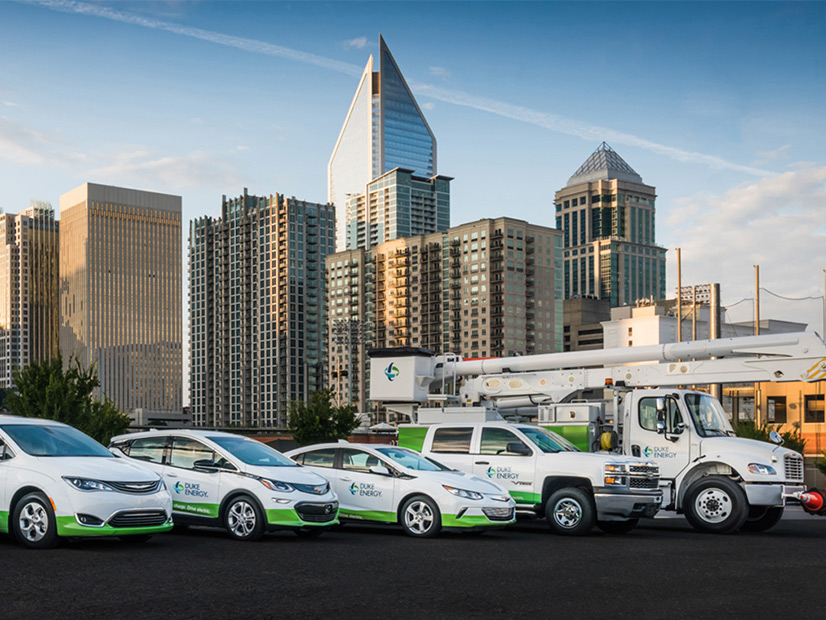Duke Energy (NYSE:DUK) asked North Carolina regulators Tuesday for approval to spend $56 million to fund more than 1,000 electric vehicle charging ports and aid school systems to purchase 60 electric school buses (Dockets E-2, Sub 1197; E-7, Sub 1195).
Duke Energy Carolinas and Duke Energy Progress said they designed their “Phase II” pilot program based on stakeholder input, as directed by the North Carolina Utilities Commission in November when it approved Duke’s $25 million Phase I pilot.
The utility also proposed a pilot for an EV charging tariff that would allow residential and business customers to choose their brand of hardware and network. The company’s Phase II filing followed its April 30 request for approval of a “make-ready” tariff offering credits to reduce the upfront cost of upgrading electrical systems to install charging hardware.
The state has more than 26,000 EVs, less than one-third of the 80,000 Gov. Roy Cooper (D) has targeted by 2025. (See North Carolina Pushes to Reach Governor’s EV Goals.)

Duke said the proposal would put DC fast chargers on state highways and at multifamily dwellings and encourage a competitive market for charging equipment by requiring multiple providers of the hardware and software. It promised a “transparent stakeholder informed process around vendor selection that allows for alternative pricing by site hosts.”
The proposal includes $14.5 million for the 60 school bus purchases, following Phase I funding to help purchase 30 buses.
Another $41.5 million would be sufficient to fill 25% of the additional DC fast chargers (DCFCs) expected to be needed to meet the 2025 target, Duke said. It would close only 10% of the charger “gap” if the program were reduced to $33 million, including the bus funding.
The companies said they would locate half the chargers in low- to moderate-income communities and half in the state’s 80 most economically distressed rural counties.
The state has more than 1,400 publicly accessible, open standard Level 2 charging outlets but only 127 publicly accessible, open standard fast charging outlets, Duke said. The companies cited a recent study that found that about 20% of EV owners in California replaced their cars with gas ones, mainly because they found charging inconvenient. (See Study Examines Drivers Who Unplug from EVs.)

The proposal includes an EV supply equipment (EVSE) program modeled after Duke’s outdoor lighting programs, in which the companies will install and maintain EV charging equipment for customers.
“The companies’ outdoor lighting programs allow for low up-front cost and an all-in rate, which makes lighting simple and affordable for customers,” they said. “Similarly, the EVSE tariff pilot allows for low up-front cost, which makes EVSE installation affordable for customers. New chargers can be added to the tariffs at any time with commission approval or as extra facilities for non-standard equipment. Additionally, like outdoor lighting, the EVSE tariff allows for multiple vendor options and a wide project selection.”
The $25 million Phase I pilot approved by the commission last year was less than one-third the $76 million proposed by Duke.
It included deployment of up to 160 public Level 2 charging stations; 40 DCFC stations at 20 locations; and 80 Level 2 charging stations at multifamily dwellings.
The commission said it supported the programs to test public response to wider availability of public charging infrastructure and to acquire data on alternative implementation approaches. “In approving these three components of the ET pilot the commission is not sanctioning an open-ended or broad, general participation by Duke in the EV charging infrastructure market,” it said.




